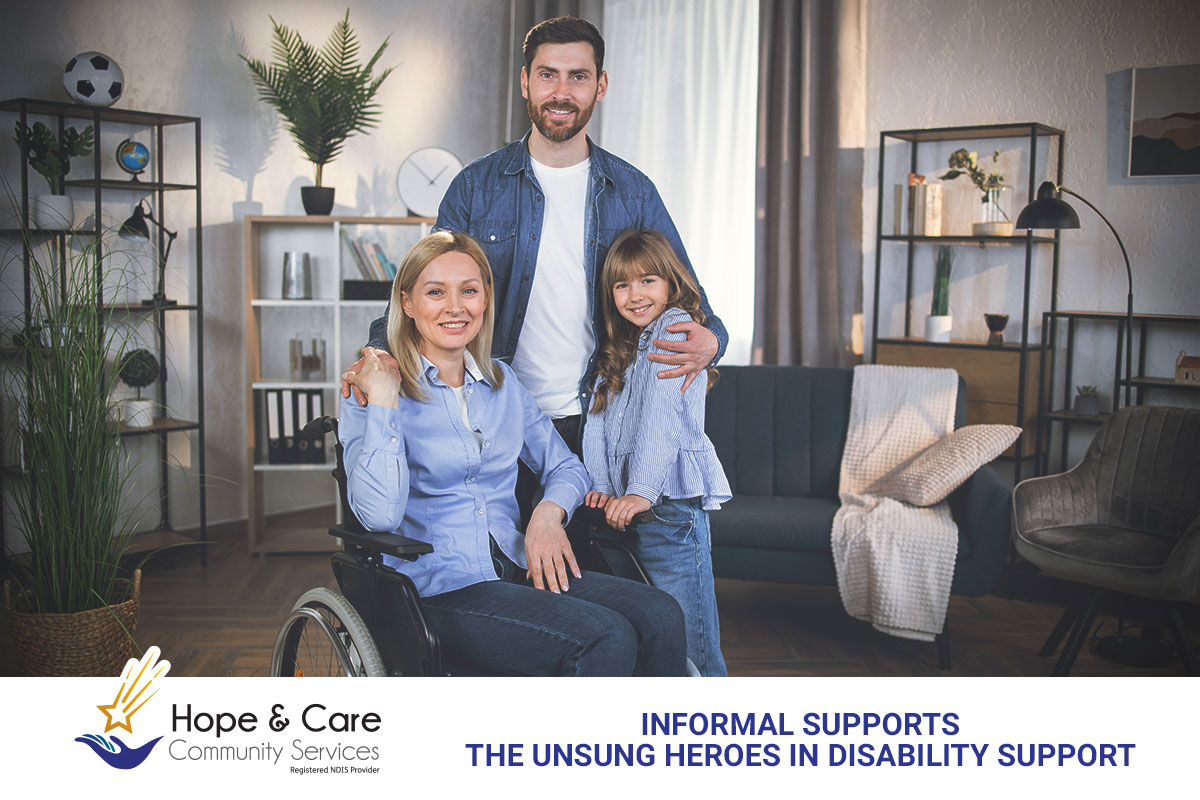
In the fabric of support for individuals living with disabilities, there exists a crucial yet often overlooked thread: informal supports. This term encapsulates the invaluable assistance provided by family, friends, teachers, and community members. These individuals form a vital network, offering both practical help and emotional sustenance, making them indispensable in the lives of those with disabilities.
Understanding Informal Supports
Informal supports are essentially the help and care provided by one’s immediate circle – family, friends, and community members – without financial compensation. This network can play diverse roles, assisting with daily activities, offering companionship, and providing emotional backing. The essence of informal support lies in its foundation of personal relationships and social connections, contributing significantly to the well-being and independence of individuals with disabilities.
Can Informal Supports Be Paid?
While the contributions of informal supports are invaluable, it’s important to note that they are typically unpaid. The NDIS recognizes the integral role of these supports in everyday life, not just for those with disabilities but for everyone. As such, the scheme does not generally fund participants to pay family members or friends for support services, underscoring the expectation that such help is part of the natural give-and-take of relationships.
However, there are exceptional circumstances under which the NDIS might consider funding informal supports. These exceptions are reserved for scenarios where formal disability support services are inaccessible or inadequate, such as in remote areas, or due to specific cultural or safety considerations. Participants believing their situation warrants such an exception are encouraged to contact the NDIA to explore their options.
Identifying Exceptional Circumstances
The NDIS acknowledges several scenarios where paying informal supports might be justified, including:
- Exhaustion of all other service options
- Cultural or religious reasons necessitating family-based care
- Situations where harm or neglect could occur without familial support
- Strong personal preferences for care from known individuals
- Living in remote areas devoid of formal support services
Participants must obtain written approval from the NDIA before compensating informal supports with NDIS funds.
Seeking Formal Support
For those whose circumstances do not fall under these exceptions, and who are navigating challenges in finding or engaging with formal support workers, assistance is available. Support coordinators and providers can help bridge the gap, connecting participants with professional services tailored to their needs.
NDIS funding can cover a wide array of supports, including daily personal activities, transport, workplace assistance, therapeutic supports, and help with household tasks, among others. These resources aim to bolster the participant’s independence and engagement with their community and work environments.
Conclusion
Informal supports play a foundational role in the support ecosystem for individuals with disabilities, offering unmatched personal care and connection. While the NDIS typically does not fund these personal networks, understanding the guidelines and exceptions can help participants and their families navigate the boundaries of formal and informal support. By leveraging both, individuals with disabilities can achieve a balanced and enriched life, marked by independence, community participation, and emotional well-being.
For further details on NDIS funded supports and navigating the mix of informal and formal assistance, Click here for more information.
Finally, as Registered Provider, we understand the intricacies of the NDIS. Unlock the full potential of your funding and provide the guidance you need to reach your goals. Feel free to Contact Us to explore how we can assist you on your journey. For instance, the NDIS is there to make a positive difference in your life, and we’re here to help!.
Want to learn more? Read other articles :
- The Simplified Path to NDIS Plan Management
- A Guide to Self-Care Mastery for NDIS Participants: Elevate Your Well-being
- Building Careers with NDIS Career Support: Empowering NDIS Participants
HCCS is a registered NDIS provider. Learn more about our services.
♥ We are available in Brisbane! – Our team is just a call away!
